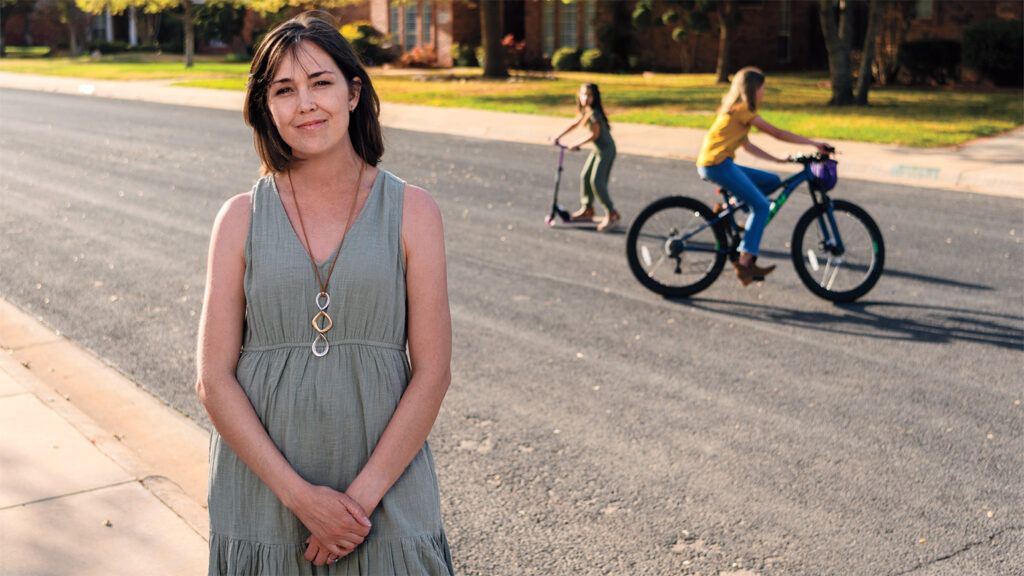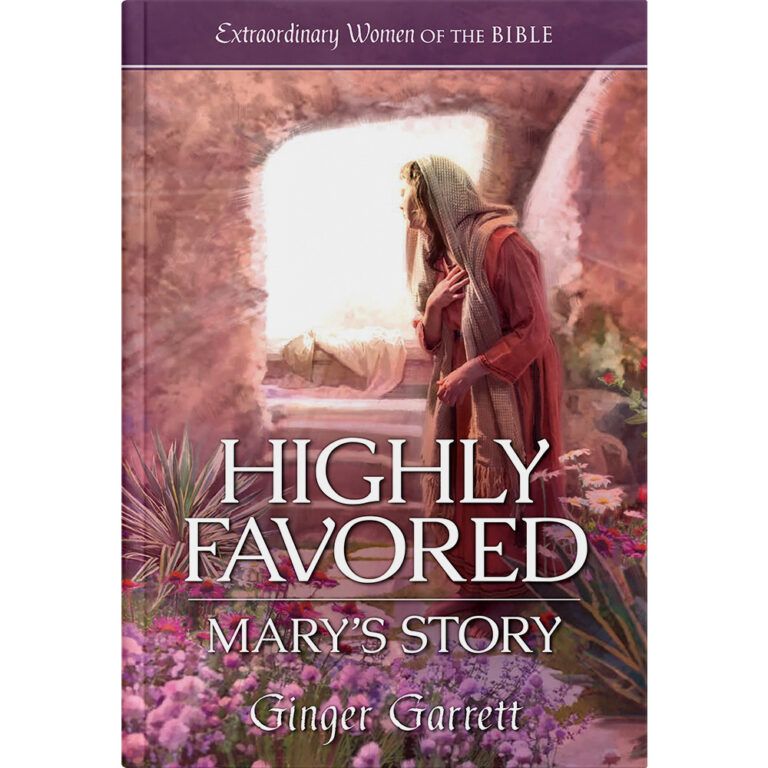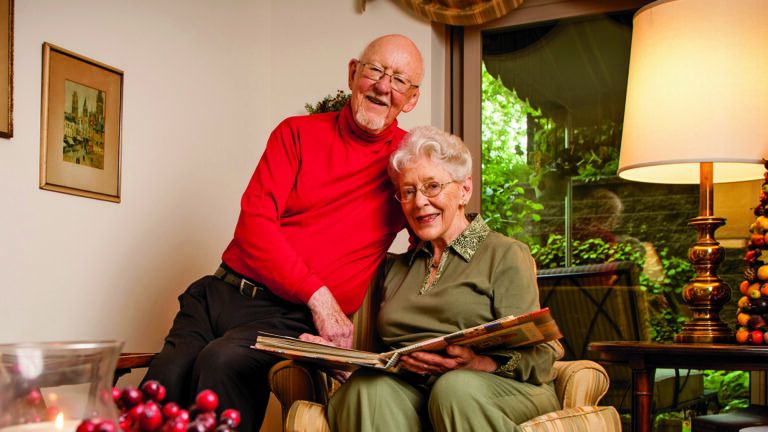“I’ve always heard that people cry when they move to Midland and cry when they move away,” my sister-in-law Eileen said.
She was trying to make me feel better. It didn’t work.
I was crying, all right. My husband, Jacob; our infant daughter, Cora; and I were about to move to Midland—the hot, dusty hub of Texas’s sprawling oil and natural gas industries.
Jacob works in industrial automation. He had interviewed for jobs in Colorado, Oregon—and, much to my dismay, with an engineering firm in the West Texas Permian Basin.
He got the Texas job.
I’d grown up in the Texas Panhandle. Even as a child, I yearned to break free from that flat, featureless landscape. In my bedtime prayers, I thanked God for the few trees near our house. I dreamed of moving to “God’s country,” as Papa, my paternal grandfather, called his home state of Washington.
Midland was not God’s country.
It was a skyline of pumpjacks and drilling rigs. Ovenlike summer heat and spring dust storms. The opposite of the cool, green, cosmopolitan place I had always envisioned for myself.
Most concerning, Midland was a five-hour drive from my parents’ house, which was five hours too close.
After a childhood tarnished by alcoholism and untreated mental illness, I remained wary of my dad’s potential for erratic behavior. Picturing him showing up unannounced on our porch reinforced my desire to be as far away as possible.
I did not want to raise my family in West Texas. I thought I’d already escaped it! Jacob and I fell in love in our small Texas hometown, married after college and worked for a few years in an orphanage in China before returning to the United States to raise a family. I wanted my children to grow up someplace beautiful. I wanted them to be exposed to the world, to different cultures. I couldn’t see how Midland checked any of these boxes.
Driving into Midland did nothing to lessen my resentment toward God. I found the landscape of the Permian Basin to be even uglier than my childhood home. At least the Panhandle has prairie grass.
Clouds of gravelly sand whipped up by the wind buffeted our car. The only living thing seemed to be spiny mesquite shrubs lining the road. Pumpjacks bobbed up and down, pulling oil from the earth. Everywhere I looked, I saw dirt and shades of brown.
We rented an apartment, and I did my best to settle in. At least being a new mom in a new town with a husband working a busy new job left me little time to ponder my misfortune.
Slowly, I made friends. A childhood friend of Jacob’s named Summer lived in Midland, and she invited me to a Bible study.
“We felt the same way when we moved here,” the women in the group said when I voiced some of my complaints. Summer jokingly quoted Psalm 22: “God, God…my God! Why did you dump me miles from nowhere?”
Everyone laughed, giving the impression they all actually enjoyed living here now. I found that hard to believe. Still, I was grateful for their advice on local pediatricians and how they got their babies through teething.
A woman I met at a farmers market invited Jacob and me to her Presbyterian church. It didn’t take long for me to form close relationships with some of the women there. I came to think of them as my “Midland Mamas,” and they helped fill the parental void in my life by offering mothering advice, attending Cora’s preschool performances and looking after her when I needed a break.
Our apartment neighbors, with whom we traded date-night babysitting, were from Russia, my first sign that Midland was more diverse than I had assumed.
I learned that multinational oil and gas companies bring employees to the Permian Basin from all over the world. Midland is home to sizable communities from Asia and the Middle East, including Chin refugees from Myanmar. And, of course, as is typical for Texas, there is a large and well-established Latino community.
I got to know some of the women from Myanmar. My brother and his family moved to town, and now I had relatives here too.
When Cora was almost three, Jacob and I decided to adopt a 17-month-old girl from China named Alea. Someone from church heard about our plans and placed a folded piece of paper in my hand, saying, “We’re excited for you and want to help!”
It was a check for $10,000, more than a third of what we needed to pay for the adoption. Months later, I was at a playground, doing my best to corral Cora while tending to baby Alea and feeling overwhelmed by life. A woman in a headscarf approached, eager to talk.
I was distracted by my children, but the woman persisted. When we finally introduced ourselves, I learned that Heba was from Egypt. She had two daughters around my girls’ ages and lived in Midland because of her husband’s job in the oil and gas industry.
Heba invited me over to her house for tea. I accepted, intrigued partly because I had never had a Muslim friend before.
“Just out of curiosity, why did you make such an effort to talk to me?” I asked her. “I was so busy with my girls, I think I was rude.”
“I knew that if you had adopted a child from another country, you must be kindhearted and open-minded,” Heba said. “I’d been praying for a new friend, and God brought you to me.”
Heba and I had a lot in common. Not just kids but also an interest in other cultures and misgivings about moving to Midland.
“We’re not the only ones here who need a friend,” Heba said. “Other women I know feel lonely too.”
We decided to do something about it. We both invited friends, a mixture of international women and native Texans who loved other cultures, and soon were having dinner parties featuring Midland’s global cuisines. Eventually, we formed a women’s group that grew into a Facebook community of more than 400. We meet up monthly and share recipes, local recommendations, stories from our childhoods and parenting tips. At one gathering, we had people from 19 different countries.
A year after arriving in Midland, Jacob and I bought a small house on a block that was full of families with young kids. I saw the house as a temporary stop on our way to someplace better, but it didn’t take long for our next-door neighbors to become some of our closest friends. In the fall of 2019, we moved to a different neighborhood, where yet again the kids made friends and soon were playing outside every day, riding bikes in the street and running in and out of neighbors’ houses.
I grew to appreciate our simple, ordinary life. Jacob’s commute took 10 minutes. He was home for dinner every evening, and we had weekends free for barbecues or afternoons at the community pool. Once, the neighborhood kids staged an outdoor production of the movie Frozen 2. Some nights, when the sky was a particular iridescent hue of pink, I made my whole family run to the end of the cul-de-sac so we could catch a glimpse of an extraordinary West Texas sunset.
When the Covid pandemic arrived in the spring of 2020, we hoped that our strong community spirit would help see us through. We stayed home, sewed face masks, shared eggs and toilet paper with our neighbors and chalked the sidewalk with declarations of solidarity.
It wasn’t until April that the true danger to Midland became apparent.
The world’s economy stalled, and the price of oil plummeted. Everything in Midland revolves around oil and natural gas. When oil doesn’t sell, employees get laid off, local businesses falter, “for sale” signs start to sprout up and lines lengthen at food banks.
Jacob’s company was already struggling before the pandemic began. Layoffs accelerated, and it seemed as if it would only be a matter of time before he lost his job.
“We might have to move,” Jacob said. My husband is thoughtful and pragmatic. He prioritizes stability for our family. I knew what he was thinking: It might be better to get out before things got even worse.
There was just one problem.
I didn’t want to leave.
“We can make a new home in a new place,” Jacob said, maybe not grasping the irony of my feelings.
“I don’t want a new life,” I said. And then, words I never thought I’d hear myself say: “I want the life we have right here in Midland.”
The girls were riding bikes in the street with their friends. Laughter drifted in through the bedroom window.
I thought of the day we’d arrived here. How little Cora had been then. How much I’d hated this new place.
The girls were growing up now. They had learned to walk, read, swim and ride bikes. We all had grown up. I had learned how to be a mom. Our family had learned how to belong to a community.
Everything I had told God that I wanted—love, stability, friendship, exposure to the world—could be found right here. Midland was a divine gift, and I had been too blinded by my own attitude to see it.
“God, please help us stay,” I whispered. Just as my sister-in-law Eileen had predicted, tears came to my eyes. I thanked God for everything and asked him to forgive my shortsightedness. God had even kept us sheltered from my parents, who never did turn up unannounced.
“Everything you feared, everything you wanted to escape—I have made it good,” God seemed to say. “See, I am always with you.”
As it turns out, before layoffs reached him, Jacob was offered a job at a different company, this one less exposed to the boom-and-bust cycle.
Not long ago, my daughter Cora sighed and said, “You know, some people live in places where there are mountains. Some live where there are trees. Aunt Janie even lives by the ocean. We live in the dirt.”
I had to smile. I knew where she was coming from. But I also knew what she would come to appreciate as she grew older.
Yes, Midland is hot, dusty and easy for a newcomer to dismiss. But it is so much more. It is God’s country.
For more inspiring stories, subscribe to Guideposts magazine.






